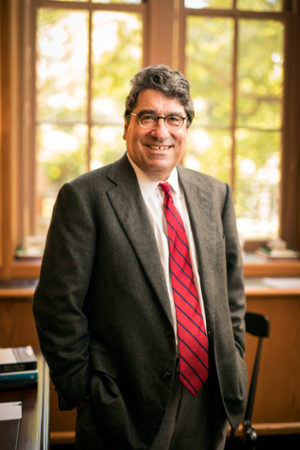vuhome
Since its founding in 2008, bolstered by thousands of donors, the university’s scholarship effort for undergraduates has supported more than 10,000 students.

Ten years ago this spring—in the midst of the global financial crisis—Vanderbilt University launched an ambitious new financial aid program that promised to replace student loans with dramatically expanded scholarships and grants. The goal was to make Vanderbilt’s undergraduate education available to every qualified student, regardless of their financial circumstances, and to give them the freedom to chart their academic course and future career plans without the burden of student loans.
Since the program’s inception, Opportunity Vanderbilt has transformed the university across a broad range of important measures, including academic rankings, student diversity and alumni philanthropy.
“Because of Opportunity Vanderbilt, the path to a world-class education has become ability—not the ability to pay. It’s the foundation of our mission as a university. It’s who we are. It’s what we stand for,” said Vanderbilt Chancellor Nicholas S. Zeppos. “This initiative continues to foster a diverse community of learners eager to solve the major problems facing society. Our entire university benefits from Opportunity Vanderbilt, not just those receiving aid.”
In the decade since Opportunity Vanderbilt began, the university has distributed $1.2 billion in undergraduate aid—benefitting more than 10,000 students. The average financial aid package has grown by 40 percent and the number of accepted students ranked in the top 10 percent of their high school classes has climbed to 90 percent.
“[Opportunity Vanderbilt] is the foundation of our mission as a university. It’s who we are.”
–Nicholas S. Zeppos
Today, the initiative supports more than 65 percent of Vanderbilt undergraduates who receive merit- or need-based aid, creating a dynamic environment where students from different disciplines and backgrounds live and learn side by side; where musicians learn from student-athletes and teachers from engineers. More than 7,500 alumni, parents and friends of the university have provided more than $400 million in gifts to strengthen endowment support for this program.
“Making Vanderbilt affordable and accessible has strengthened the quality of the university overall and put it on an upward trajectory in several key areas,” said Douglas Christiansen, vice provost for enrollment affairs and dean of admissions and financial aid.
“Over the last decade, we’ve more than doubled our applicant pool and nearly doubled the diversity of our first-year class,” Christiansen said. “We’re at No. 14, our highest U.S. News & World Report national ranking ever. And the dollar amount of need-based undergraduate loans has dropped by more than 70 percent. That’s the power of Opportunity Vanderbilt.”
He added that Opportunity Vanderbilt is responsible for the Princeton Review naming Vanderbilt No. 1 for Best Financial Aid among national universities in 2018.
Vanderbilt’s community of support continues to invest in the program, which strengthens the endowment and provides current-use funding for scholarships. In recent months, the university announced a multi-million-dollar gift from Elizabeth Allen, BA’83, and husband Greg Allen, BA’84.
Katy Miller, BA’03, credits the availability of financial aid to help her pay for her undergraduate education and was eager to give back once she heard about Opportunity Vanderbilt.
“The second I heard about Opportunity Vanderbilt, I knew I wanted to support the program,” said Miller, who, with her husband Kyle, established the Katy and Kyle Miller Scholarship in 2017. “I love the thought that our scholarship will open doors for students just like me to come to Vanderbilt, relieved of the burden of student debt. After graduation, their career choices will be wide open because they are not making decisions based on paying off loans.”
Current Vanderbilt students are attracted to the program not just by the financial aid they receive, but also the university’s wider network of support.
“To me, Opportunity Vanderbilt, represents more than just being able to pay for college,” said Yoanna Ivanova, a sophomore majoring in biomedical engineering, and an inaugural member of the A. James Clark Scholars Program at Vanderbilt. “It’s that backing and that support that means more than anything else.”
The long-term future of Opportunity Vanderbilt depends on securing endowment support to cover half of all undergraduate financial aid.
“We are proud to celebrate the generosity of our alumni, parents and friends to fuel this transformative initiative that is at the core of everything Vanderbilt values,” said Susie Stalcup, vice chancellor for development and alumni relations. “It speaks volumes that our community continues to invest in and strengthen this program. Their support changes lives.”